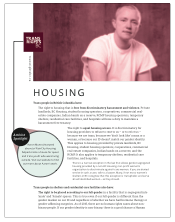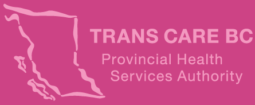Update: For information regarding the addition of Gender Identity and Expression to the 2016 BC Human Rights Code, and to the 2017 Canadian Human Rights Act, please visit the Explicit Protection page.

Trans people in British Columbia have:
- The right to housing that is free from discriminatory harassment and violence. Private landlords, BC Housing, student housing operators, cooperatives, commercial real-estate companies, First Nations bands on a reserve, RCMP housing operators, temporary shelters, residential care facilities, and hospitals all have a duty to maintain a harassment-free tenancy.
- The right to equal housing access. It is discriminatory for housing providers to refuse to rent to us – or to evict us – because we are trans, because we ‘don’t look like’ a man or a woman, or because our ID doesn’t match our gender identity. This applies to housing provided by private landlords, BC Housing, student housing operators, cooperatives, commercial real-estate companies, First Nations bands on a reserve, and the RCMP. It also applies to temporary shelters, residential care facilities, and hospitals.
- There is a narrow exception in the law that allows gender-segregated housing provided by a non-profit women’s organization to discriminate against trans women. If you are denied service in such a case, talk to a lawyer. Many, if not most, women’s shelters in BC recognize that this exception is transphobic and serve all self-identified women – as they should.
Trans people in shelters, residential care facilities, and hospitals also have:
- The right to be placed according to our gender identity in a facility that is segregated into ‘male’ and ‘female’ spaces. This is true even if our gender identity is different than the gender marker on our ID and regardless of whether we have had hormone therapy or gender-affirming surgeries.
- As of 2015, there are no human rights cases about non-binary people. If our gender identity is non-binary, there is a good chance a Human Rights Tribunal would decide that we have the right to choose the gendered space where we will be safest.
- The right to be referred to by the name and pronouns that we use (regardless of our legal name, sex, or what is on our ID).
- The right to wear clothing that is corresponds with our gender identity.
- The right to have the agency keep our trans status confidential from other residents. If we require arrangements to protect our safety or ensure appropriate health care, we will need to disclose our trans status to some staff members. Communicating clearly and regularly to staff about what information we want kept confidential can help protect our rights.
- The right to have the agency keep any records that include our trans status confidential.
- The right to use the toilet and shower facilities that fit our gender identity or, if we are non-binary, where we believe will be safest.
What laws protect trans people in relation to housing?
- The BC Human Rights Code protects trans people from discrimination by private landlords, BC Housing, student housing operators, cooperatives, strata councils, and commercial real-estate companies on the grounds of ‘sex, gender identity or expression.’
- In housing provided by a First Nations band on reserve, the military, a branch of the federal government, or the RCMP, or other federally-regulated bodies, trans people are protected by the Canadian Human Rights Act on the basis of ‘sex, gender identity or expression.’
- The Criminal Code protects you from criminal acts like harassment, assault, and sexual assault.
- The BC Privacy Act protects you from a breach of your privacy. If the agency is run by government, the confidentiality of your records is protected by the Freedom of Information and Protection of Privacy Act.
How can you stand up for your rights?
Despite having rights, trans people often experience housing-related discrimination and some are at greater risk of homelessness. This is especially true for trans women who are also Aboriginal or people of colour. Standing up for our rights can be difficult, but it can also help make positive social change.
Be proactive. These steps will help protect you if you end up in a residential tenancy dispute:
- Have a witness when you discuss renting with the landlord.
- Keep careful notes and any papers the landlord gives you.
- Try to always be listed on the lease. Get copies of the lease.
- Do a move in inspection and move out inspection report with the landlord. Ask for copies of these inspection reports.
- Pay your rent and your damage deposit in some way that leaves a paper trail. If you ever pay cash for anything, ask for a receipt. Keep the lease and your cancelled cheques or receipts in a safe place.
In all of the situations below write down everything that happened to you. Note all meetings you had, requests you made, and what happened. It is very hard to remember things accurately unless you do this.
- If a housing provider refuses to rent to you because you are trans:
- You can file a human rights complaint . You need to be able to prove that the reason they refused to rent to you was that you were trans – and this can be difficult unless they said something like ‘we don’t rent to trans people’. It can’t just be based on your opinion that the refusal was probably because you are trans.
- If you are evicted from an apartment because you are trans:
- Never ignore an eviction notice.
- To avoid being physically kicked out of your place, you must follow the procedures of the Residential Tenancy Act. Contact the Tenant Resource and Advisory Centre for information and assistance: 604-255-0546 in the Lower Mainland and 1-800-665-1185 in the rest of BC.
- You can file a human rights complaint against the owner of the property. You need to be able to prove that the reason they evicted you was that you were trans – unless they said something like ‘we don’t rent to trans people’. It can’t just be based on your opinion that the refusal was probably because you are trans.
- If you are entering a shelter or residential care facility:
- While the Human Rights Code applies to emergency shelters, it is very difficult for trans people (especially trans youth) living in shelters to stand up for their rights. Many shelters are sex-segregated and have communal sleeping and washing areas that can be dangerous for trans people.
- Many shelters have intake forms that require legal name and sex to be disclosed. It is not illegal to put the name you go by on intake forms, unless you are trying to con someone. You can put your gender identity on the form if it asks about sex. Staff may hassle you.
- One way to prevent or deal with problems is to contact the lawyers at the Catherine White Holman Wellness Centre to get a letter about the accommodations you need and have a right to as a trans person. Email lawyer@cwhwc.com for an appointment. You can also show shelter staff this fact sheet.
- If you are denied housing at a shelter or residential care facility because you are trans:
- You can file a human rights complaint against the organization that runs the facility. You will need to be able to prove that the facility’s actions were because you were trans. Get legal help.
- If you are in a shelter or residential care facility, and someone harasses or assaults you:
- If it was another resident who harassed or assaulted you, talk to a staff member.
- If it was a staff member who harassed or assaulted you, call the police.
- Keep detailed notes of what happened and get the names of anyone who saw what happened.
- Get legal help.
- If you were harassed or assaulted because you are trans, you can file a human rights complaint against the organization that owns the facility. It is their legal responsibility to ensure that residents are not discriminated against or harassed for being trans.
- You can file a complaint with the police, who may press charges.
- If you were assaulted, you can sue the person who assaulted you.
- If you live in BC Housing:
- Try to resolve the problem informally by talking to the BC Housing employees and the applicable manager.
- If you are not satisfied with the results, request a formal review by the Complaint Resolution Committee. Download and fill out the Complaint Resolution form. Submit this form and any supporting documents to the address listed on the form.
- If you are not satisfied with the results of the review, file a complaint with the Office of the BC Ombudsperson by filling out this complaint form.
- If you live in a cooperative, student housing, strata council, residential care facility, hospital, or other facility with internal dispute resolution procedures:
- Seek legal advice about which internal procedures apply to you. Try to resolve your issue through these procedures.
- If you are not satisfied with the result of the internal procedures, you can apply for dispute resolution through the Residential Tenancy Dispute Process. Contact the Tenant Resource and Advisory Centre for information and assistance: 604-255-0546 in the Lower Mainland and 1-800-665-1185 in the rest of BC.
- You can also file a human rights complaint against the housing operator if you have been discriminated against or harassed because you are trans.
- If you are a tenant and the management or another tenant harasses or assaults you:
- For immediate help, call the police, who may press charges. Write down word-for-word what happened. Take photos if they will help.
- If you were harassed or assaulted because you are trans, you can file a human rights complaint against the owner of the property. It is the owner’s legal responsibility to ensure that their tenants are free from harassment or discrimination.
- You may be able to sue the person who assaulted you in small claims court.
- If you are a condo owner and another condo owner or tenant harasses or assaults you because you are trans:
- You can file a human rights complaint against the strata council.
- You can also file a complaint with the police, who may press charges against the person who harassed or assaulted you.
- You may be able to sue the person who harassed or assaulted you.
- If you are a condo owner and the strata council discriminates against you because you are trans:
- You can file a human rights complaint against the strata council.
What can you expect if you apply for dispute resolution with the Residential Tenancy Branch Office of the Provincial Government?
- The Residential Tenancy Branch is supposed to resolve disputes between landlords and tenants. To use its services effectively, you should do three things:
- Act fast if a landlord gives you an eviction notice – you only have 5 days to respond.
- Get advice by calling the Tenant Resource and Advisory Centre for information and assistance: 604-255-0546 in the Lower Mainland and 1-800-665-1185 in the rest of BC.
- Gather your evidence including copies of any documents and witnesses who know what happened.
- Once you are prepared, you can use the free services of the Residential Tenancy Branch. In general, one side files a form and delivers it to the other side, which has a chance to file a written response. After that, a hearing is scheduled.
- A hearing takes 1 hour and is usually conducted by phone. You or your advocate must phone in to the hearing at the scheduled time. Prepare what you will tell the arbitrator before you call and have notes to help you. The arbitrator will listen to your side and the landlord’s side.
- The arbitrator will issue a decision within 30 days.
Who can you go to for help?
- For a free legal assessment of your situation, contact the Catherine White Holman Wellness Centre . Email lawyer@cwhwc.com to book an appointment.
- CWHWC has a legal clinic for trans and gender diverse people twice a month. There is a waitlist. Clinic lawyers are not able to represent you, but they can give you a list of lawyers who specialize in human rights complaints. If you cannot travel to the Catherine White Holman Wellness Centre, you may be able to set up an appointment by Skype.
- Another organization called Access Pro Bono has over 75 legal advice clinics throughout the province. Not all Access Pro Bono lawyers will be familiar with trans legal issues. For more information about Access Pro Bono and the programs it offers, or to find a legal advice clinic in your area, go to: accessprobono.ca or call: 1-877-762-6664.
- To find a lawyer, call the BC Branch of the Canadian Bar Association at 604-687-3221 or 1-800-663-1919 (Monday to Friday, 8:30am to 4:30pm). They can give you the name of a lawyer who does Human Rights Complaints and Charter cases, and who will have a consultation with you for up to 30 minutes for a fee of $25 plus tax.
- To find the contact information for a lawyer whose name you already know, you can use the Lawyer Lookup tool.
- For help filing a human rights complaint, contact the BC Human Rights Tribunal . They may also be able to represent you. However, there are rules about what cases the Tribunal takes on. Contact them at 604-775-2000 in the Lower Mainland or 1-888-440-8844 in the rest of BC.
- For advice on all tenancy disputes, contact the Tenants Resource and Advisor Centre for information and assistance: 604-255-0546 1-800-665-1185 from 8am – 4pm.
- To find an advocate who can help you with housing issues, visit Povnet.
Resources:
- Aging Out: Moving towards queer and trans* competent care for seniors: A guide by Qmunity with recommendations on how to provide culturally competent care for LGBTQ seniors in Residential Care and Assisted Living..
- ClickLaw’s tenancy page: Provides a wide-range of information related to housing.
- Senior Services Society: Resources for help finding housing for people over 55.
- BC Housing website: A list of emergency shelters by city, along with info about supportive and affordable housing, and rental assistance.
- BC211 website: For accurate information about shelter vacancy, dial 211 to reach the Shelter and Street Helpline. Shelter vacancy information is also published and updated twice a day on the BC211 website.
- Transitioning our Shelters: A Guide to Making Homeless Shelters Safe for Transgender People by Lisa Mottet and John M. Ohle.
- The Human Rights Complaint Process for Transgender People in BC by barbara findlay, QC. Free download available.




